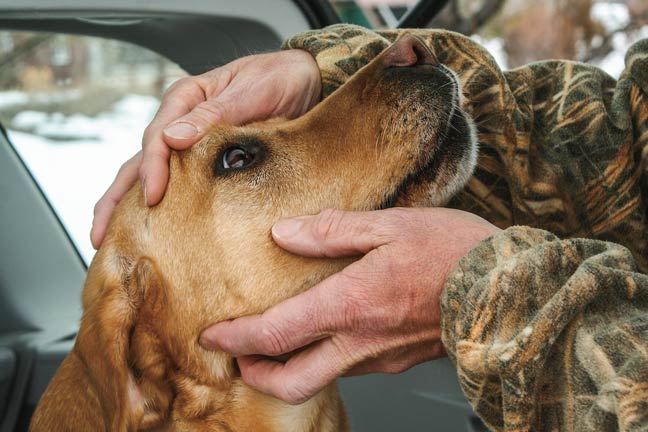There's one thing you can count on about young dogs; sooner or later they turn into old dogs.
But does old age mean your dog's hunting days are over? Not at all. As with people, if the body and heart are willing, there's no reason in the world he can't be hunted. But before you take him into the field in his 11th, 12th, or 13th seasons, you owe it to him to physically prepare him.

If it's at all possible, continue to exercise him. Understand that he'll have some limitations, and don't push him to the level he might have been capable of just a year or two earlier. Dogs age quickly, and a dog that is in his prime at nine can be noticeably slower by his 10th year. If he can run or swim, give him as much as he wants. You'll know when he's had enough. When he's tired, call it a day. What he needs now is rest and sleep.
"If he can run or swim, give him as much as he wants. You'll know when he's had enough."
Equally important is keeping his weight at a healthy level. Older dogs are often fat, and a fat old dog is a dog that is going to get injured or sick. Take a look at your dog's profile from above. Does he have a noticeable waist? Look at him from the side. Does his belly tuck up?
If not, cut back on his food intake. Ignore his begging; all dogs beg. Overfeeding him isn't doing him any favors. Most owners are surprised at how little food their dogs really need to thrive.
If your dog has arthritis — many do — there are several drugs your vet can prescribe at a reasonable cost that can do wonders to relieve his aches and pains. He'll tell you when and how much to use.
Finally, take him hunting.
Treat him like you would a puppy, and limit his time afield, so he enjoys every moment of it. An hour or even less may be all he can handle. If that's the case, plan for it and when he's tired, put him up. If he can handle two days in a row, fine, but most can't. He'll probably need several days of rest before he's ready to go.
Then take him hunting again.
The joy in his eyes will let you know you made the right decision.






